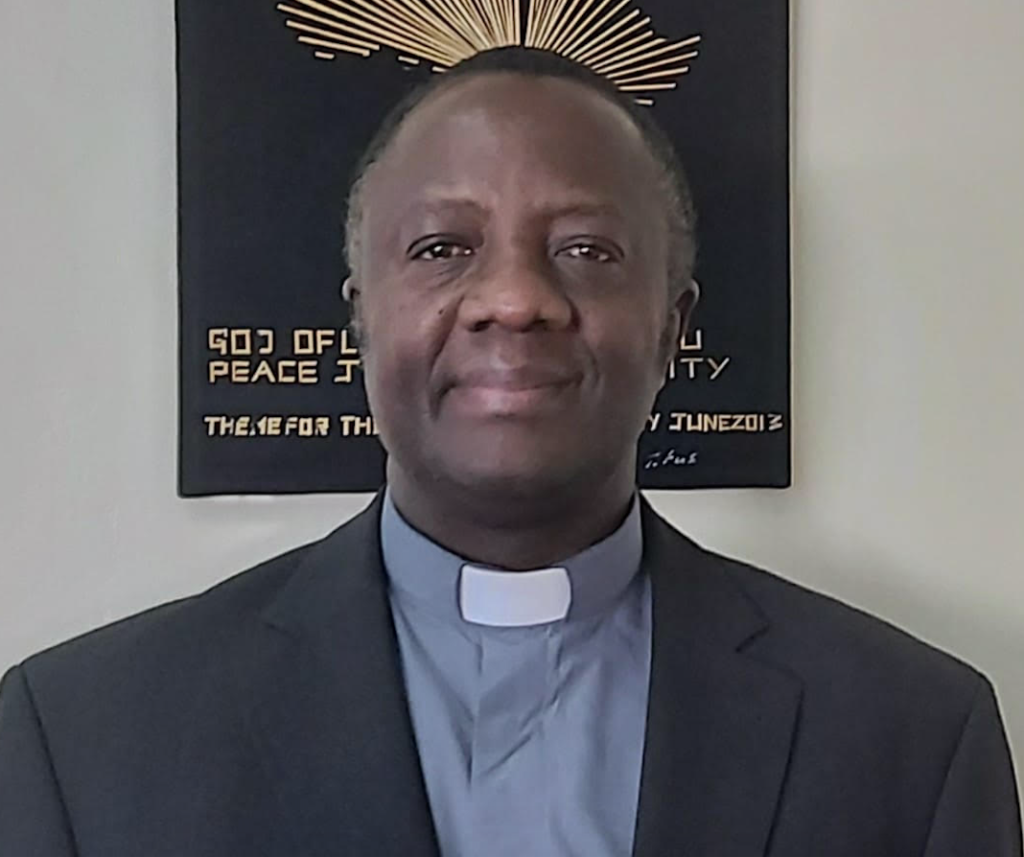
DEBT AND CORRUPTION IN AFRICA
By REV. DR FIDON MWOMBEKI, GENERAL SECRETARY, All Africa Conference of Churches (AACC)

Twenty years ago, I was a young activist participating in several events of protests against unsustainable debt for poor countries, including at the highlight in Cologne, Germany when we presented millions of signatures from around the world to the G7 leaders to demand they “drop the debt!” Churches were the main drivers of that famous Jubilee 2000 campaign which resulted in more than US $100billion of debts owed by the 35 poorest countries cancelled. The symbol we used was a chain, and cancelling it was symbolized by a broken chain link. At that time, we had hopes and wishes that poor countries, most of whom were from Africa, will never go back to such enslavement by debt.
But alas, here we are today. AACC is concerned and worried about the rising, unsustainable indebtedness of many countries in Africa. From what we hear and want to follow up, it is possible that most, if not all of the countries whose debts were cancelled then, have gone back to even higher debts than then. And while at that time the target of our campaign was almost clear (OECD countries and their multilateral financial institutions), today the situation is more complex with more players who were not there before, most notably China. This complexity will make the conversations even more convoluted.
During that Jubilee 2000 campaign, the OECD countries always counteracted our efforts by pointing at rampant corruption in Africa which is a major part of the problem. We must admit, our campaign did not pay sufficient attention to the scourge of corruption, even though it was spoken about. But now, AACC is convinced that corruption within Africa is as much a problem as debt, and definitely causes or worsens the burden of debt in our countries. Therefore, it is necessary to address both together as serious problems, interlinked as it were.
Since both lead to catastrophic problems to innocent masses, the church cannot stay on the sidelines while God’s people continue to suffer worsening deprivation because of the actions of those bestowed with the responsibility of leadership. The time has come, once again, for us to speak out- and to act!
We see a very worrying lack of awareness in the population about the seriousness of the problem of unsustainable debt. People are happy to see new developments, especially the megaprojects that have now become a signature of the continent as every country targets to reach “middle-income status by 2025”. There is a lot of secrecy around these mega projects, particularly on contracts, procurement, financing and awarding of tenders and the information is not easily accessible. It is our children whose future is being mortgaged, and who will be unable to undertake meaningful development when their time comes because of the burden we are putting on them before they are even born. In the short and medium terms, we are increasingly fearing the sovereignty of some countries may be at risk because of debt. We see debt as a vehicle for a new scramble for Africa, where some countries are even accepting racist and dehumanizing behavior of some “lender countries” because they have already been held hostage, giving away their vital resources, including land and minerals for senseless exploitation at the expense of their own citizens, some of whom are even driven out of their lands. Is this a new face of slavery and dehumanization of Africans in their own continent?
The challenge of debt is being worsened by corruption. Nothing has exemplified this link more than the controversies in the handling of the huge funds countries have borrowed for the Covid-19 pandemic. While we all agree that the corrupt are in all countries, we are appalled by the level of corruption and impunity in many African countries. AACC, while acknowledging the very negative role that has been played by international contractors and financiers in corrupting officials in Africa, the responsibility rests with our own governments. It is actually escapism to really blame foreigners when our own systems and our own people are corrupt. If we do not blame ourselves as countries, we are admitting being fools by allowing this to happen to us and then cry, over and over.
Admittedly, good governance is still a big challenge in African countries, and the problem of debt and corruption is but a manifestation. It is very bad, and we agonize that the Mo Ibrahim Leadership award for Africa’s presidents has had no winners for several years now. In cases where there are institutions established at the continental level, notably by the AU, Churches are concerned that these are still lagging behind in consistently fulfilling their mandates, especially Member States commitment to their reporting obligations. An example here among others could be the African Peer Review Mechanism, which lamentably we do not see it function as intended.
However, we do not give up. We are very much encouraged by some countries that are successfully taking positive steps against corruption, and it is seemingly reflecting in the strides they are making in development. This further demonstrates that Africa can and should get rid of corruption by itself.
Because of silence about these two matters, we would like to encourage churches to raise awareness of the people, as responsible citizens in their countries and to start again robust conversations on these issues. The churches in Africa play a very central role in most countries, as they are present at all levels of society and they still command a higher level of trust than many other institutions in the society. It is an asset that they need to use in public space.
It is on this basis we are launching this policy brief. We want it to restart and reenergize the already existing conversations on the matters of debt and corruption. We want to raise the awareness of church leaders to be equipped with adequate knowledge of the situations in their own countries, and galvanize their members at all levels to interrogate the contexts they are in. We want churches to engage in activities that will enlighten and empower their congregations to speak out and act to get governments to move decisively before this problem overwhelms them.
We want to see the people in different countries in Africa discussing and paying attention to the emerging debt crises, to let the people know and keep demanding their governments to fight corruption, even where corruption has lamentably become tolerated and expected as a given. We want to see churches condemning these vices, making them known and using their spiritual resources to help both perpetrators and victims of corruption.
That is why AACC is launching the Policy Brief on debt and Corruption. The Policy Brief is a result of wide consultations among various players in churches in the continent. It defines the AACC stand on these challenges, and provides some suggestions for churches to start active engagement starting from their local levels to national levels. Ultimately, AACC hopes to create a powerful coalition across Africa that is enlightened, and pushing African governments to deal with these issues.
I would like to reiterate very clearly AACC’s unequivocal support and promotion of Agenda 2063, and see it as a viable roadmap towards “The Africa We Want!” A Peaceful, Integrated and Prosperous Africa. But this will be possible only if we get rid of corruption, and we do not enslave our future through irresponsible, unsustainable borrowing and mortgaging of our resources to new potential enslavers.
As I come to the end of my message, I would like to say that it in the vein of seeking and building connections that we are privileged to have the presence of the AU Institutions with us today, some Member States of the AU, some of our partners, and potential ones including AACC members to this circle to discern together how we can tackle unsustainable debt and corruption on the continent. We are excited about the possibilities of journeying together in this area of work in service to humanity.
Before I close, I would like to mention that we want to run a program in a few countries in Africa, where we will accompany churches which are ready through research, data provision, capacity building, publicity and campaigns as they engage in their countries. We will continue through our liaison office at the AU to keep the AU organs informed about these matters and continue to call for their visible and effective intervention according to the AU Charter.
Our desire is to really enable AACC to assist those countries with access to information, even when that information is difficult to get in the country, and to provide a forum for conversation when sometimes it may not be feasible inside the country. For this task, we very cordially and sincerely invite you to cooperate with us to realize this program.
